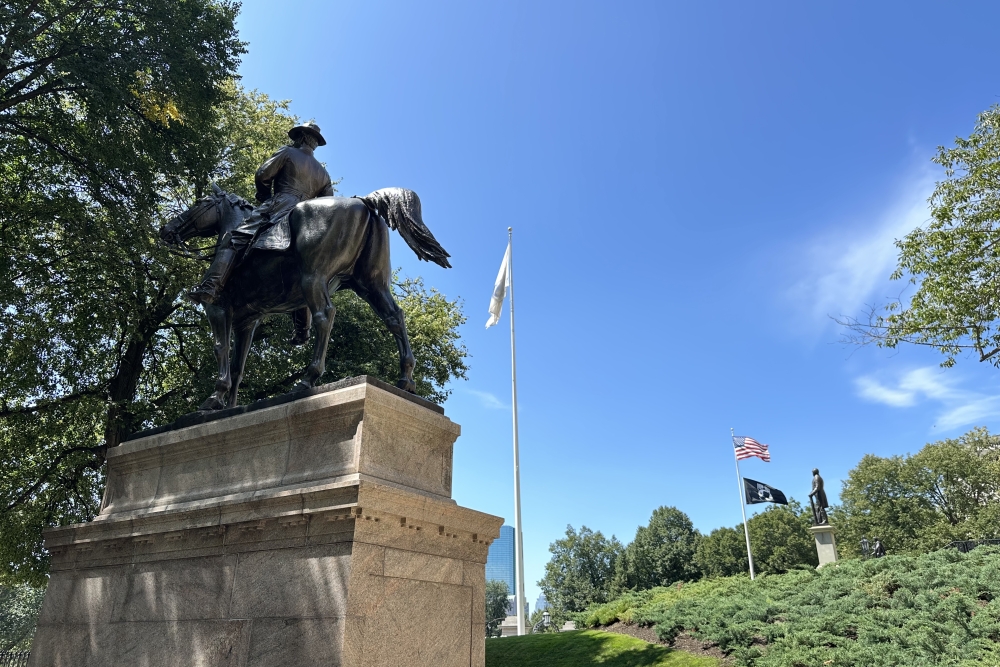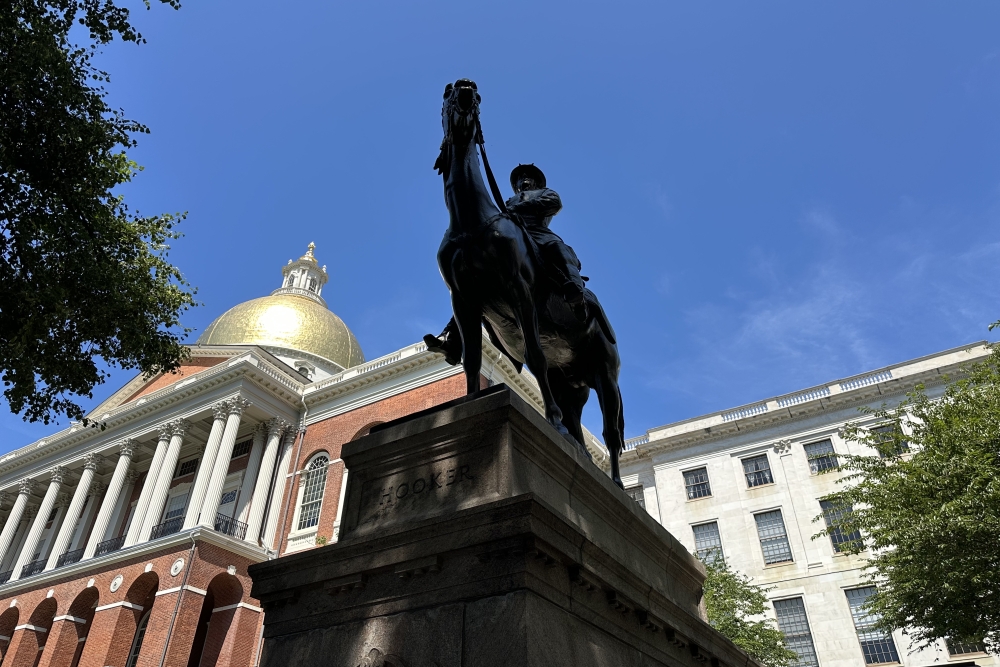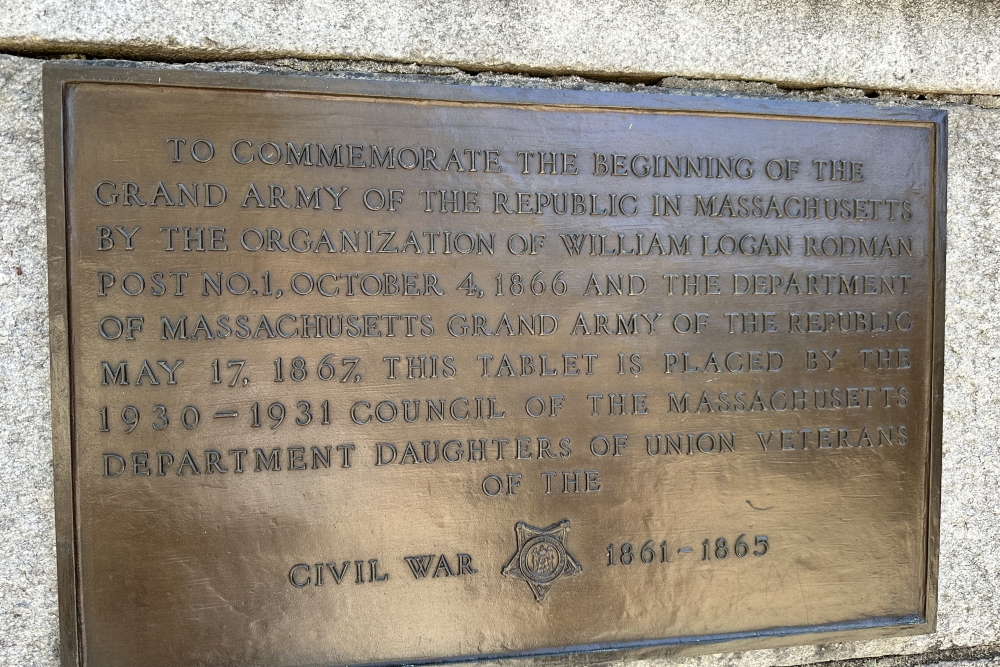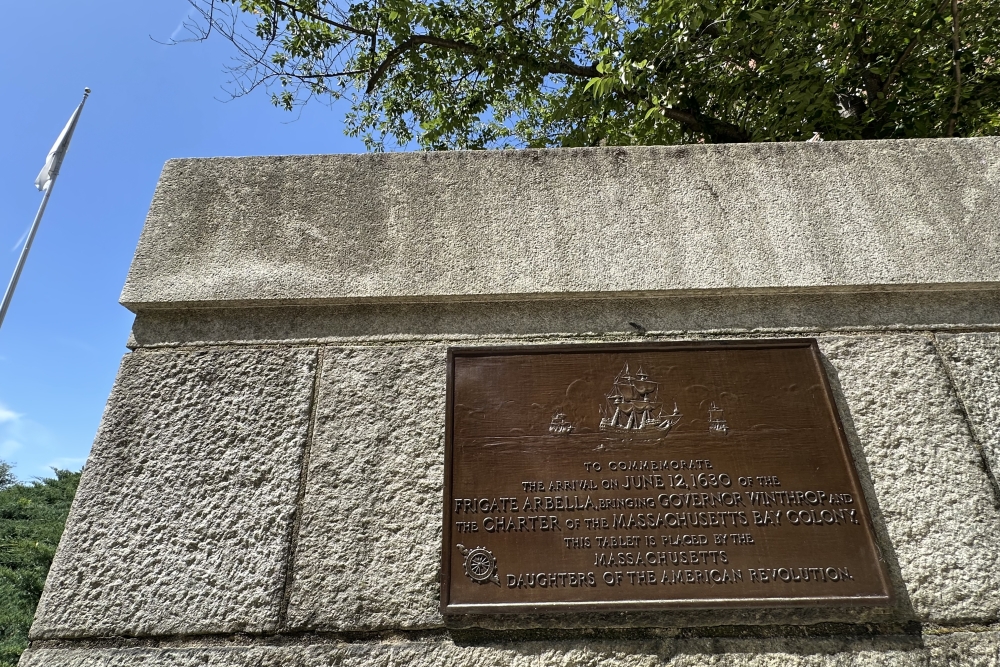Statue of General Hooker
Hooker was born in Hadley, Massachusetts, graduated from West Point in 1837, and later distinguished himself in the Mexican-American War, where he attained the rank of lieutenant colonel. After a dispute with his superiors, Hooker left the army in 1853 and settled as a farmer and land developer in Sonoma, California. Unhappy, he began drinking and gambling.
When the Civil War broke out, Hooker travelled east to rejoin the Union Army. Although initially rejected, Hooker wrote a passionate letter to Abraham Lincoln, complaining about mismanagement in the army and requesting his reassignment. He was appointed brigadier general and given command of a brigade and then a division under General George B. McClellan. Hooker quickly distinguished himself as an aggressive and fearless commander, at Williamsburg and during the Seven Days' Battles. He opened the fighting at the Battle of Antietam, where he was wounded in the foot. When McClellan failed to pursue Lee's army after Antietam, Lincoln replaced ‘Little Mac’ with Major General Ambrose Burnside. After a defeat at Fredericksburg and a series of poor decisions, Lincoln fired Burnside and promoted Hooker to commander of the Army of the Potomac in early 1863.
As commander of the Potomac Army, Hooker improved conditions for the soldiers, including food, medical care, and leave. However, disagreements with his staff and commanders and a defeat against Confederate commander General Robert E. Lee at Chancellorsville, Virginia, led to Hooker's dismissal as commander of the Potomac Army.
Hooker continued his career in the US Army and was transferred to the western theatre of war with the XI and XII Corps in the summer of 1863 to join the Army of the Cumberland. Hooker achieved successes in the Battle of Chattanooga and the Battle of Lookout Mountain. He was also successful in the Atlanta Campaign of 1864 under General William Tecumseh Sherman. From October 1864 until the end of the war, Hooker commanded the Northern Department from headquarters in Cincinnati, Ohio.
By 1864, Hooker had fallen out of favour with his superiors. When he was not promoted from major general to lieutenant general, he decided to end his participation in the war. However, Hooker remained in the army until he was forced to retire in 1868 due to a stroke.
Do you have more information about this location? Inform us!
Source
- Text: TracesOfWar
- Photos: Mischa Rus
Nearby
Museum
- Museum USS Constitution - Charlestown
- Museumship USS Cassin Young (DD-793) - Boston Navy Yard
- Bunker Hill museum Boston - Boston
Point of interest
Monument
- Robert Gould Shaw and the 54th Regiment Memorial - Boston
- Mural World War I Massachusetts State House - Boston
- Memorial Commodore John Barry - Boston
Cemetery
- Commonwealth War Grave Cambridge Cemetery - Cambridge
- Commonwealth War Grave Mount Auburn Cemetery - Cambridge
- Commonwealth War Graves Woodlawn Cemetery - Everett







